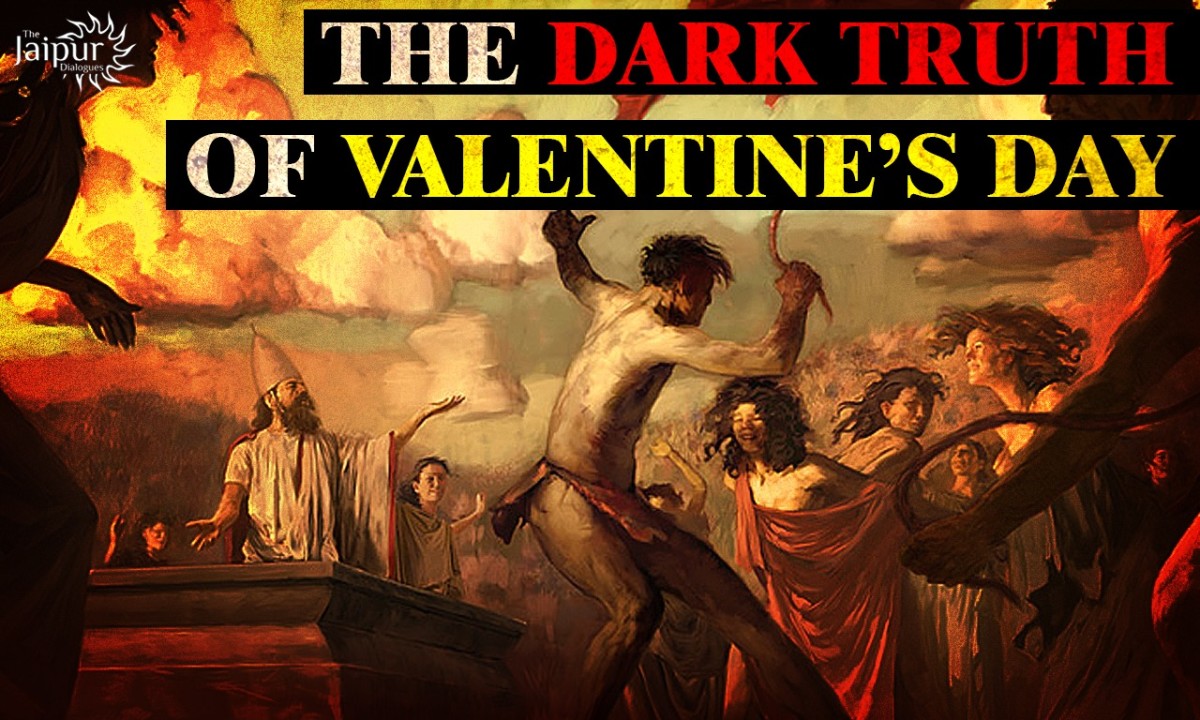The Greatest Love

What is the greatest love? And how do you say, "I love you"?
With Valentine's Day just around the corner (it was when I first made this page), people will be thinking about love, talking about love, sending love notes, etc. But will they realize what is the greatest love? Will they know how to say "I love you" in a way that reaches the heart? It's not just saying the words "I love you," but how do you really say "I love you" in a way that is truly understood? In the book listed in the "How Do You Say 'I Love You'"? section below, Dr. Gary Chapman lists some really constructive ways to say "I love you" and be understood by your beloved. These, as you will see, involve more action than actual speech. Thus, I believe his concept is derived from or is best arrived at after a study of the meaning of the word "love" itself. In English, our word "love" is used to cover a wide variety of meanings, but in Koine Greek, the language of the New Testament, they had several words for love, each one defining a particular shade of meaning, but three of them are the main ones and ones which hold special significance for us today, and I want to examine these three..

First: Eros:
First, there was "eros," from which we get "erotic," referring to sensual or sexual love. This was, of course, a purely selfish love. Much of what passes for romantic love today, and much of what fills the so-called love songs we hear in the media, might fall under this word. Although definitely the lowest form of love, It could be the first step toward a deeper love represented by the other two Greek words.
Here's some of what Wikipedia says about the classical use of erotic love: [It] "was generally referred to as a kind of ...madness from the gods. This love passion was described through an elaborate metaphoric and mythological schema involving "love's arrows" or "love darts", the source of which was often the personified figure of Eros (or his Latin counterpart, Cupid)..... At times the source of the arrows was said to be the image of the beautiful love object itself. If these arrows were to arrive at the lover's eyes, they would then travel to and 'pierce' or 'wound' his or her heart and overwhelm him/her with desire and longing (love sickness). .... .'Love at first sight' was explained as a sudden and immediate beguiling of the lover through the action of these processes." But this was not the only mode of entering into passionate love in classical texts...

Second: PHILEO:
"brotherly love"
Then there was "Phileo" which is used of friendship and affection, thus adding to the purely physical attraction of "eros" the elements of personality and character. The Greek lexicon defines phileo as: "to love, to approve of, to like, sanction, to treat affectionately or kindly, to welcome, befriend, to show signs of love to. ..."
We also derive the city name "Philadelphia", from "phileo." I'm sure you heard Philadelphia called the city of brotherly love. Thus, "Phileo" can also be the love of one family member for another.
So now we have come a step further than eros. Both of these, however, fall short of what true love is meant to be.

Third: Agape:
But the New Testament added a new one--"agape" "Agape" is a giving love, entirely unselfish. The greatest love is the agape love of God. "God so loved,,,that He gave..." (John 3:16) .
But God is God. What about us humans? In our human relationships, it is difficult to think of having this agape love right off the bat, but perhaps it could develop as a third stage after we have gone from eros to phileo. Mary-Ellen Grisham, publisher of "Eternal Link," said this: "After counseling young couples for years, a minister I know suggested that 'love is what you do.' Even with a basis of sincere [romantic] love, rushed schedules and economic necessities dimmed the glamor of marriage. With the advice that 'love is what you do,' the[y] could concentrate less on romantic feelings and more on positive doing--showing their love in practical and effective ways....
That selfless love called agape that causes each of us to focus on the needs of others with no thought of return for ourselves is a high ideal of Christian love. While it takes all kinds of love and loving to make a good home and marriage, the common element of 'what you do' runs through all the forms that love takes. From romantic love to brotherly and family love, the outer evidence shows in 'what you do.'"
Thus, she would say that agape, or giving love is not only the greatest love but also the outer evidence of the reality of any form of love. Whether you agree with her on this or not, the vital question is this: can we mere sinful humans really exhibit this giving type of love?


Agape, God's great love
CAN WE EXHIBIT IT?
I John 4:8 tells us that God is love (agape). Thus, This agape love is a characteristic of God. It belongs to His essential nature. He loves because He is love. He can do no less. His love for us is unconditional. That means that it is not dependent upon anything in us or what we do or don't do.
But, how can we sinful human beings exhibit this kind of love? The first part of the afore mentioned verse explains that it is by knowing this God. We know Him by accepting his greatest gift of love to us, eternal life (Romans 6:23) through the sacrificial death of His son for us. The complete verse of John 3:16 reads: "For God so loved the world that He gave his only begotten son so that whoever believes in Him, should not perish but have everlasting life." This speaks not only of eternal existence but of a quality of life filled with His love which starts the moment we accept it.

How can we manifest agape?
Once we accept God's free gift of salvation (mentioned above), we can begin to experience His agape love and to let it overflow and thus show it forth to those around us.
Paul gives us a picture of what agape looks like in I Corinthians chapter 13. You can see one translation here in this picture (at the right)..
I have also listed a few of the qualities he mentions from a different translation in my talk bubble below. A good exercise would be to look up the chapter and compare the meanings in your own Bible and in different translations.
An important step - experiancing the love of God:
In order to manifest the love of God to others, we must first experience and fully appreciate it in our own lives.
Love suffers long and is kind...does not behave rudely....does not seek its own....thinks no evil
Read this classic work for more on agape: - I Cor.13 explained
I have this remarkable classic. It's a little book with a big message. It was a real joy to read years ago, and just as much of a real joy to re-read yesterday. This classic work has sold millions of copies since Dwight L Moody first published it in 1884 after hearing Drummond respond to a request at the home of friends to expound on some portion of Scripture. Young Drummond chose 1 Corinthians 13. Moody noted, "It seemed to me that I had never heard anything so beautiful." Drummond shows how Paul perfectly contrasts, analyzes and defends love. Drummond also emphasizes that it takes an incredible amount of effort and time to truly learn how to love in a mature way-- in the way God loves. If you practice Love and begin to truly feel Love and see the good you are doing in the world then most certainly a strong faith will follow. The only way to truly know God is to feel love, for God is love. Love comes first and faith second for without love .as Paul's said, "...if I have all faith so that I could remove mountains, and have not love I am nothing." In my humble opinion, this book truly is a masterpiece.... To have love in your heart is by far the greatest compliment to God for God is love.
Poll 1: Can we manifest agape?
In the light of what you have read above, do you think we humans can manifest the greatest love, agape, and if so how?
Can we, mere humans, manifest agape love?
Christian love songs - A prime example:
Although many love songs have been written, most are written from a secular viewpoint and, as I mentioned above, tend to promote eros, There are a few, however, written from a specific Christian viewpoint, and you can find them online if you use appropriate keywords. One especially unique and poignant example is the one which Noel Paul Stookey of Peter, Paul, and Mary fame, wrote for his friend and singing partner, Peter's wedding. The title is "Wedding Song or "There is Love". and, using the concept of giving, it sets forth the ideal of Christian love as being the only real love. Take a listen:
Poll 2: Does Valentine's day promoted real love?
Based on your own experience, do you think that Valentine's day supports real love and thus is a valuable holiday or do you think it does NOT support real love, and thus, should be done away with? Please vote in the poll directly below.
Does Valentines Day promote real love?
How Do You Say "I Love You"?
Dr, Gary Chapman has really hit on something here! His revolutionary concept has been a help to many marriages, including my own. If you express love in a way your spouse doesn't understand, he or she won't realize you have expressed your love at all. The problem is that you are speaking two different languages.
Are you and your spouse speaking the same language? While love is a many-splendored thing, it is sometimes a very confusing thing, too. And as people come in all varieties, shapes, and sizes, so do their choices of personal expressions of love. More often than not, the giver and the receiver each express love in different ways. That can lead to misunderstanding, quarrels, and even divorce. Quality time, words of affirmation, gifts, acts of service, and physical touch are the five basic love languages.
Dr. Gary Chapman identifies these five basic love languages and then guides couples toward a better understanding of how each of them uses these love languages. Learn to speak and understand your mate's love language, and in no time you will be able to effectively love and truly feel loved in return. Skillful communication is within your grasp!










